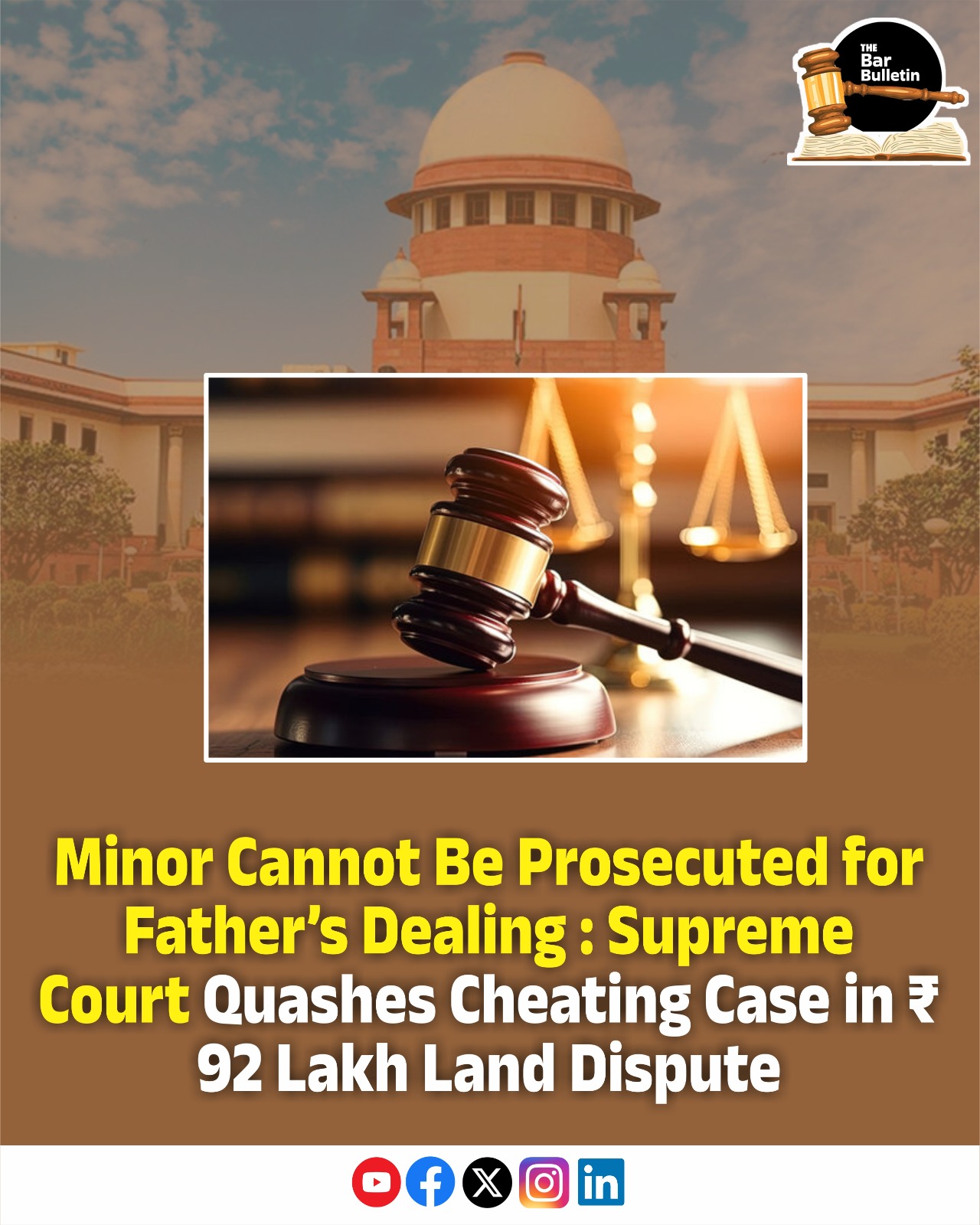The Supreme Court has quashed criminal proceedings against an appellant accused in a ₹92 lakh land transaction case, holding that no offence under Sections 406 or 420 IPC was made out since he was a minor at the time of the alleged incident.
The case stemmed from allegations that the appellant’s father had cheated the complainant between 2015–16 by taking money on the false promise of selling a plot without having valid title. The prosecution claimed that the father later executed a sale deed in favour of his son, the appellant, to transfer the same property. On this basis, both were charge-sheeted under Sections 420, 406, 294(b), 506(i) IPC read with Section 34 IPC[1].
The appellant sought discharge under Section 239 CrPC[2], arguing that he had no role in the transaction and was a minor when it occurred. Both the trial court and the Madras High Court rejected his plea.
Allowing the appeal, a Bench of Justices Sanjay Karol and Vipul M. Pancholi noted that all acts of inducement and payment were solely attributable to the father, and there was no evidence linking the appellant to any fraudulent intent or participation. The Court held that a subsequent transfer of property alone does not establish criminal culpability.
Accordingly, the Supreme Court set aside the lower court orders and allowed the appellant’s discharge.
[1] Replaced by Sections 318(4), 316(2), 296, 351 and 3(5) of Bhartiya Nyaya Sanhita, 2023.
[2] Replaced by Sections 262 Bhartiya Nagarik Suraksha Sanhita, 2023.



